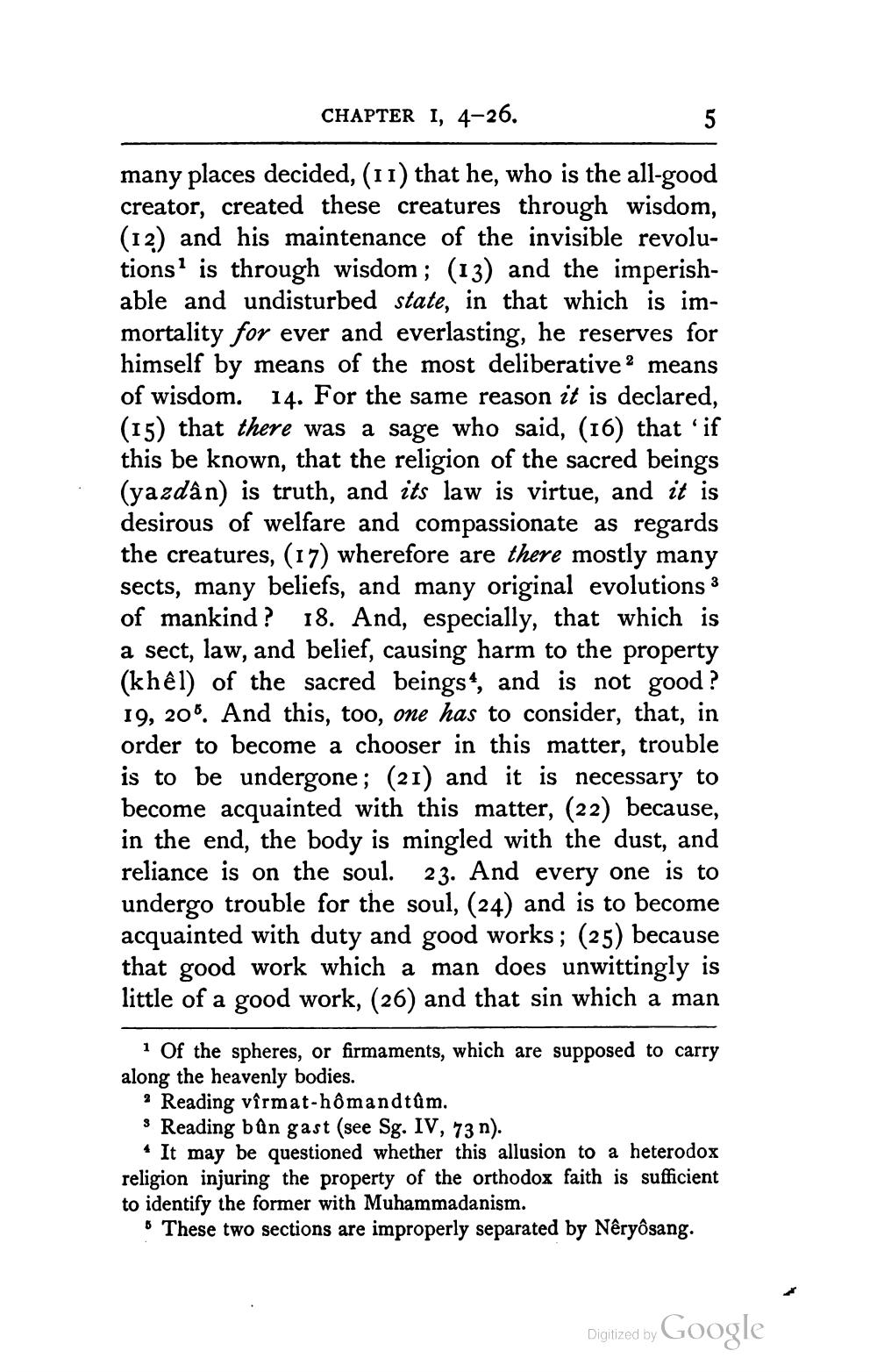________________
CHAPTER I, 4-26.
many places decided, (11) that he, who is the all-good creator, created these creatures through wisdom, (12) and his maintenance of the invisible revolutions' is through wisdom; (13) and the imperishable and undisturbed state, in that which is immortality for ever and everlasting, he reserves for himself by means of the most deliberative means of wisdom. 14. For the same reason it is declared, (15) that there was a sage who said, (16) that if this be known, that the religion of the sacred beings (yazdân) is truth, and its law is virtue, and it is desirous of welfare and compassionate as regards the creatures, (17) wherefore are there mostly many sects, many beliefs, and many original evolutions 3 of mankind ? 18. And, especially, that which is a sect, law, and belief, causing harm to the property (khêl) of the sacred beings“, and is not good ? 19, 20%. And this, too, one has to consider, that, in order to become a chooser in this matter, trouble is to be undergone; (21) and it is necessary to become acquainted with this matter, (22) because, in the end, the body is mingled with the dust, and reliance is on the soul. 23. And every one is to undergo trouble for the soul, (24) and is to become acquainted with duty and good works; (25) because that good work which a man does unwittingly is little of a good work, (26) and that sin which a man
1 Of the spheres, or firmaments, which are supposed to carry along the heavenly bodies.
? Reading virmat-hômandtům. * Reading bûn gast (see Sg. IV, 73 n).
* It may be questioned whether this allusion to a heterodox religion injuring the property of the orthodox faith is sufficient to identify the former with Muhammadanism.
These two sections are improperly separated by Nêryôsang.
Digitized by Google




